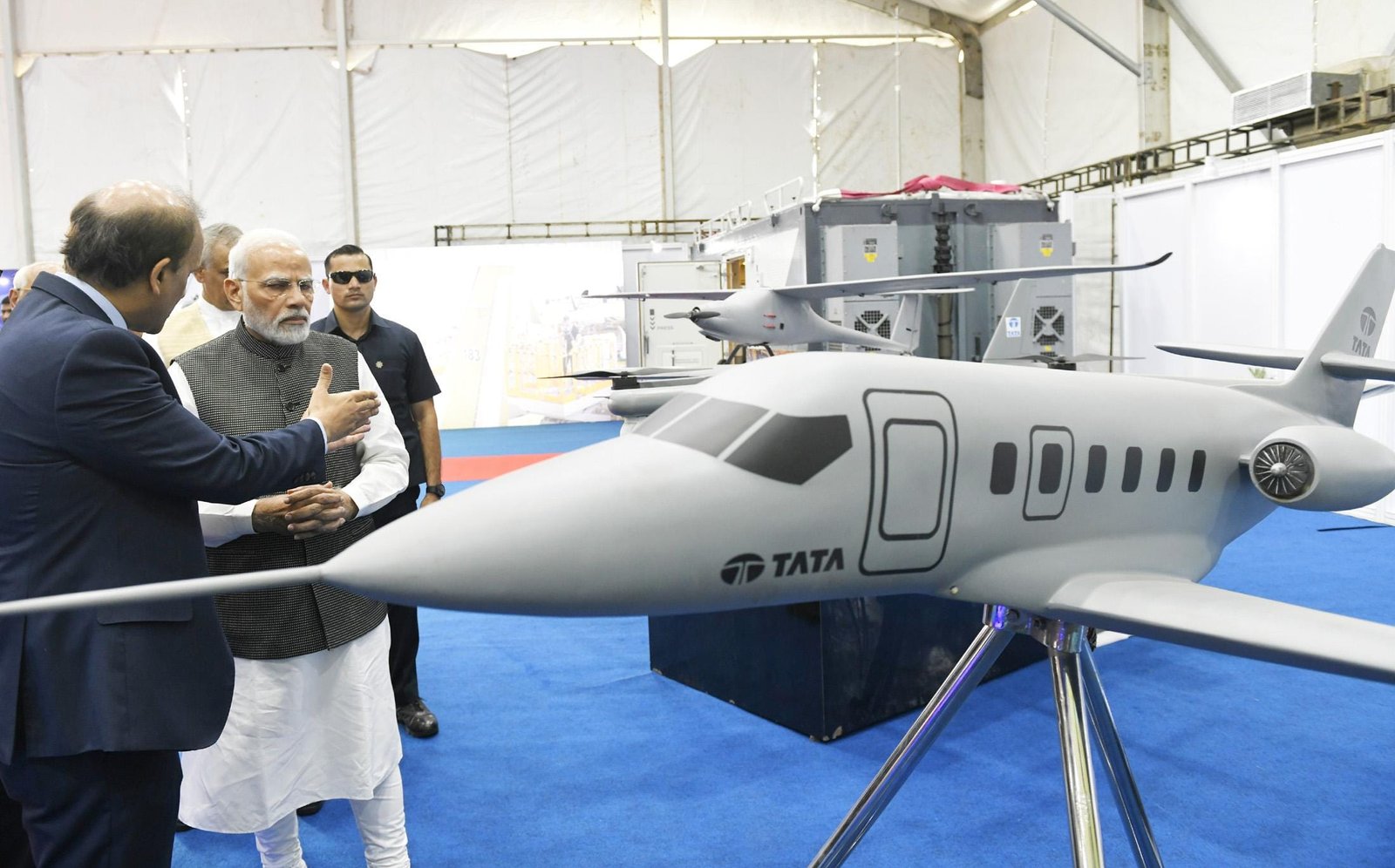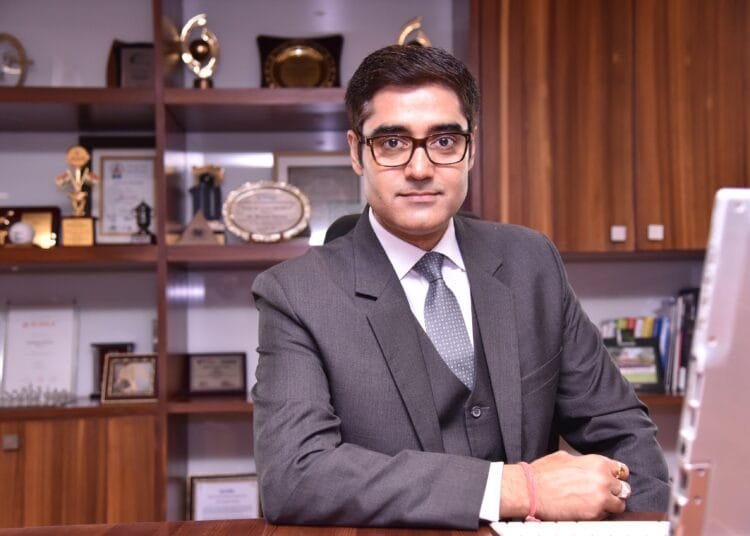PM says aerospace sector has $3+bn investments; potential of $5+bn defence exports
The Rs.21,935 crore Tata-Airbus C-295 transport aircraft manufacturing facility has the power to transform the country’s defence and transport sectors, says Prime Minister Narendra Modi.
Laying the foundation stone on 30 Oct 2022 at the Vadodara facility, he pointed out that it is for the first time that this big investment is taking place in the Indian defence sector.
The facility is a collaboration between Tata Advanced Systems Limited and Airbus Defence and Space S.A., Spain.
“We aim to scale our defence manufacturing beyond US$25 billion by 2025. Our defence exports will also exceed US$5 billion,” said the Prime Minister, adding that more than US$3 billion has been invested in the aerospace sector alone.
Transport aircraft, manufactured at the Vadodara facility, will not only strengthen the Armed Forces but also help in developing a new ecosystem of aircraft manufacturing.
He noted that more than 100 MSMEs are also associated with the project to manufacture C-295 aircraft for the Indian Air Force (IAF).
He said the promise of ‘Make in India, Make for the World’ will gain new push from this land as the project will be able to take orders for export to other countries in the future.
Commenting on the fast-evolving aviation sector of India, Modi said, “India will need more than 2,000 aircraft in the next 15 years. Today is a crucial step in this direction and India has already begun preparations for the same.”
He further explained that operating conditions are constantly improving and India is focusing on cost competitiveness as well as quality.
“India is presenting the opportunity of low-cost manufacturing and high output,” the Prime Minister remarked, highlighting the availability of a huge talent pool of skilled manpower.
The Prime Minister said India is creating an unprecedented environment for manufacturing in the country.
He gave examples of creating a simplified corporate tax structure while making it globally competitive, opening up the 100% FDI route, opening up defence and space sectors for the private companies, reforming 29 central labour laws into four codes, abolishing 33,000 compliances, and creation of the Goods and Service Tax by putting an end to a complex web of dozens of taxes.
He said, “A new saga of economic reforms is being written in India today and the manufacturing sector is reaping the most benefits from this apart from the states.”
The government, he added, has started giving equal importance to the public and private sector.
“We have come up with various new incentives for investors. We launched the Production Linked Incentive scheme, which made the change visible. Today our policies are stable, predictable and futuristic,” he said.
The Prime Minister also recalled a time when the dominant thought was to focus on the service sector as manufacturing was considered to be beyond reach.
“Today, we are improving both services and manufacturing sectors,” he said.
He underlined the importance of a holistic approach that focuses on both the manufacturing and service sector. “Today India is preparing to stay ahead of everyone in manufacturing,” he added.
“This became possible because in the last eight years we focused on skill development and created an environment for it. By assimilating all these changes, today India’s development journey in the manufacturing sector has reached this stage,” he pointed out.
Highlighting the investment friendly policies of the government, he remarked that its benefits are clearly visible in FDI.
More than 160 countries have invested in India in the last eight years. Such foreign investments are not limited to certain industries but spreads across 61 sectors of the economy and covers 31 states of India.
The Prime Minister pointed out that the defence corridors being developed in Uttar Pradesh and Tamil Nadu will immensely help in scaling-up this sector.
Modi also urged all those associated with the industry to make the most out of the unprecedented investment confidence in the country at the moment.
He added that more thought must be given to helping the start-ups of the country in moving forward.
The Prime Minister also stressed on increased participation of the private sector in the field of research. “If we push in this direction, we will be able to develop a stronger ecosystem of innovation and manufacturing.” fiinews.com










